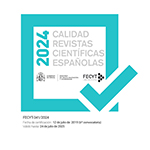The encoding of irrelevance in discourse: tanto between concession and justification
Abstract
he paper sets out to investigate the linguistic expression of irrelevance in discourse, by focusing on the functions and uses of the marker tanto in present-day Italian. The marker encodes the irrelevance of a given condition, thus conveying a concessive meaning not distant from the value expressed by concessive conditionals or ‘no matter’ predicates. In the construction [p, tanto q], the marker tanto conveys the fact that q holds in any case, namely whether p, non-p, or any value of p is the case. After discussing how the notion of irrelevance has been treated in the literature on conditionals, concessives and predicates of indifference, we will discuss the results of a corpus-based study on spoken Italian, identifying and annotating all the occurrences of irrelevance-tanto. We will show that irrelevance may be expressed by a number of different discourse patterns, explicitly mentioning the irrelevant proposition, the null-effect and the motivation for irrelevance, or omitting one or more of these components. It will be argued that the cases in which speakers simply refer to the irrelevance of a given proposition are rare in our sample, whereas it is more frequent that they also mention the motivation underlying irrelevance, justifying their indifference and thus crucially acting at the intersubjective level. We will show, indeed, that tanto may also be used alone as a discourse marker encoding the speaker’s attitude of indifference: in these cases, tanto is pronounced with suspensive intonation, and subsumes under its semantics the adversative, justificative, and indiscriminative value, activating meanings that speakers are supposed to share.
Downloads
##submission.format##
Licenza
La revista Cuadernos de Filología Italiana , para fomentar el intercambio global de conocimiento, permite el acceso sin restricciones a sus contenidos desde el momento de su publicación en la edición electrónica, por lo que es una revista de acceso abierto. Los originales publicados en esta revista son propiedad de la Universidad Complutense de Madrid y es obligatorio indicar su origen en cualquier reproducción total o parcial de la misma. Todos los contenidos se distribuyen con una licencia de uso y distribución.
Reconocimiento de Creative Commons 4.0 (CC BY 4.0).
Este hecho debe hacerse explícitamente en esta forma cuando sea necesario. Puede consultar la versión informativa y el texto de la licencia legal .
La revista Cuadernos de Filología Italiana no recibe honorarios por la presentación de trabajos o por la publicación de sus artículos.










